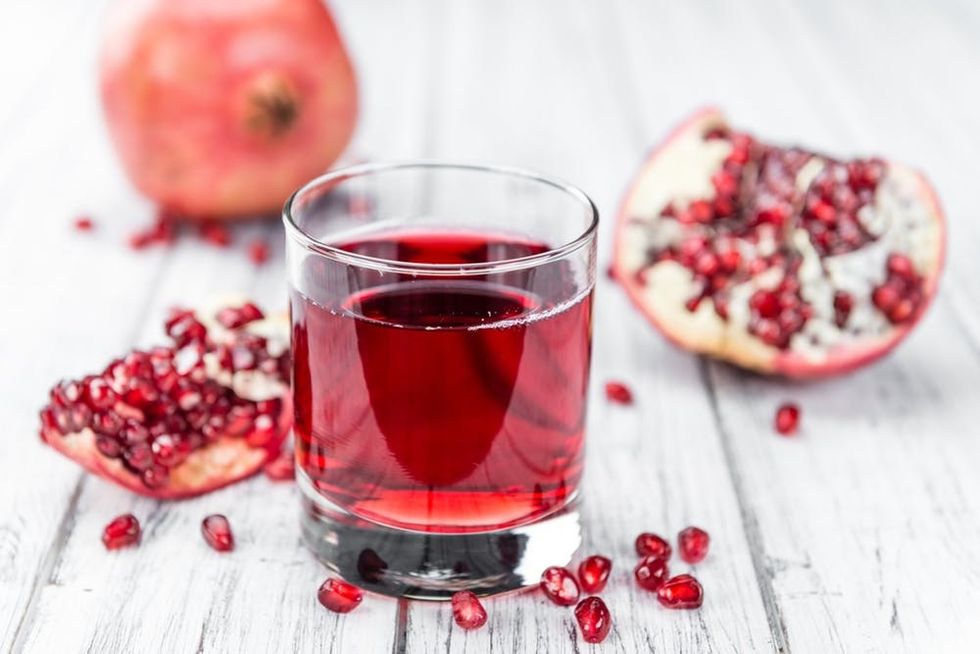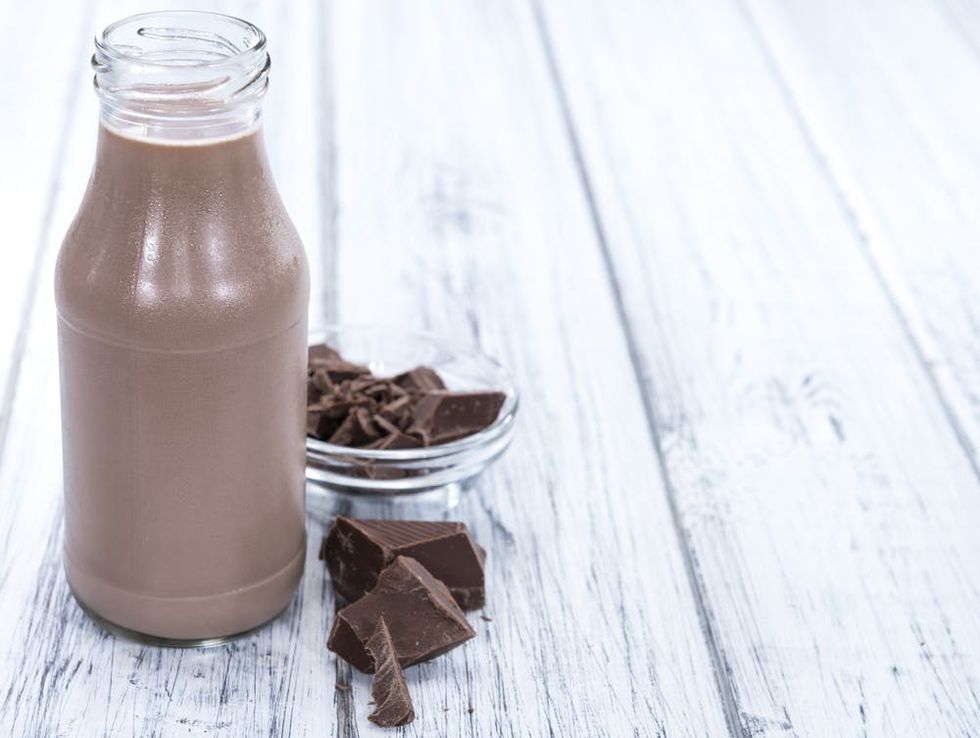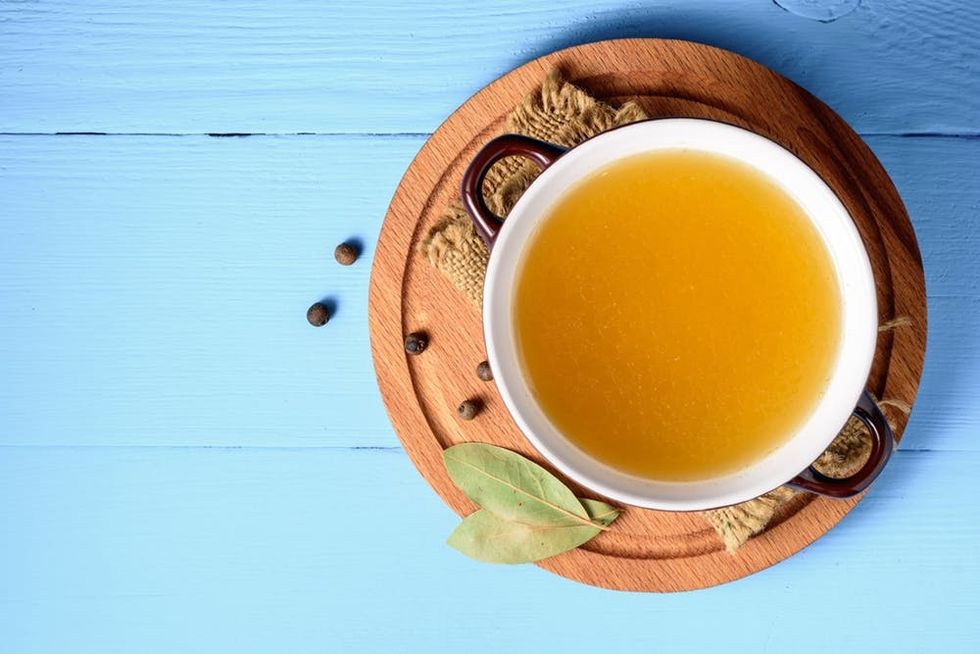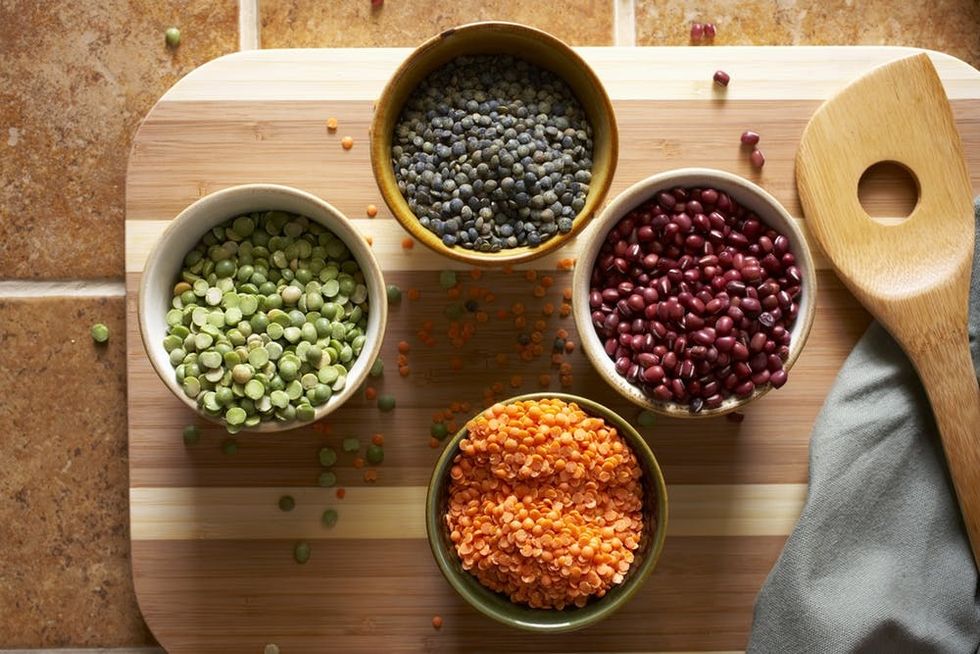Go beyond the sports drink.
These Are the Best Things to Eat After a Workout, According to a Dietician

Lesley Chen is a California native who writes about travel, health/fitness, and other lifestyle topics. She has a serious case of RBF and exercises mainly to balance out an aggressive candy addiction.
There are a lot of things that can make or break your fitness goals: the right workout, gear, playlist, and gym buddy, to name just a few. But one thing that could be sabotaging your results without your even realizing it is what you eat after a workout.
It may seem counterintuitive to put calories back into your body right after you’ve spent the effort to burn them off. But “it’s important to refuel your body with the right blend of nutrients to help repair and restore your muscles,” according to Elizabeth Shaw, RDN and Nutrition Expert and Communications Consultant at ShawSimpleSwaps.com. “Typically, after a hard workout (in which your heart is pumping and your RPE [Rate of Perceived Exertion] is high), aim to consume carbs and protein within 15 to 20 minutes.”
Of course, not all carbs and proteins are created equal; what you eat afterward is nearly as important as the workout itself. You also need to rehydrate and replenish your electrolytes. The American College of Sports Medicine recommends replacing each pound of water lost during a workout by drinking 16-24 ounces of fluids or eating meals with fluids. Below are six drinks and foods Shaw recommends for maximum results. After all, you didn’t go to that HIIT workout or double spin class just for kicks.
DRINKS

1. Pomegranate Juice: An eight-ounce bottle of POM Wonderful 100% Pomegranate Juice has 700mg of polyphenol antioxidants and as much potassium as a medium banana, which helps promote healthy muscular function. In a preliminary 2014 study by the University of Texas, researchers measured the effect of pomegranate juice on post-exercise arm and leg strength in recreationally active men. On day four of the eight-day trial, isometric muscle strength in the 96-hour period after a workout was significantly higher in the men who had consumed a cup of pomegranate juice daily compared to the men in the placebo group. “Although the research is promising, additional clinical research is needed to establish causation and the potential impact of pomegranate polyphenols on exercise,” Shaw cautions. In the meantime, try adding a cup of POM Wonderful to your smoothie, along with some butternut squash, apple slices, and Greek yogurt. “The protein-carbohydrate and antioxidant combo will be your body’s best friend to help your muscle recovery,” she says.

2. Chocolate Milk: Great news for kids-at-heart: Chocolate milk is an excellent and relatively cheap post-workout drink, providing an optimum blend of protein, carbohydrates, and important nutrients like potassium. Studies have shown that it can help with muscle recovery and that, with its naturally high concentration of electrolytes, it’s as — if not more— effective than traditional sports drinks for both resistance and endurance training. Take it from professional athletes like NBA star Klay Thompson and Ironman champion Mirinda Carfrae, who have all jumped on the Got Milk? train. Says Shaw, “Though more research is needed on the optimal amount, timing, and frequency, there’s definitely promise in keeping chocolate milk on hand.”

3. Bone Broth: Beyond its status as the trendy food du jour, bone broth has its avid fans in health and wellness circles. “While more research is needed in this area,” Shaw explains, “the simple makeup of a traditional bone both provides promise for its use as an option for exercise recovery,” as it contains protein, potassium, sodium, magnesium, calcium, and phosphorus. Similar to chocolate milk, bone broth has its share of pro athlete supporters such as Kobe Bryant. It also makes an easy and convenient way to rehydrate after exercise.
FOODS

4. Pistachios: Getting your fill of protein doesn’t mean you have to grab a burger after the gym. Nuts are a vegetarian and vegan-friendly plant-based protein source that also has important electrolytes like sodium and potassium to keep the body in balance. A one-ounce serving of heart-healthy pistachios, such as Wonderful Pistachios Roasted & Salted, has 6g of protein (more than most snack nuts), 3g of fiber, 160mg of sodium, and 310mg of potassium. Plus, they’re travel-friendly: Shaw recommends that her clients “keep a stash of pistachios in their bags to enjoy immediately post-workout if they know they have a long commute before their next meal.”

5. Pulses: Pulses, which are part of the legume family and include foods like beans, chickpeas, and lentils, are another nutrient-dense source of plant-based protein and good carbs. Shaw has some options if you’re not into eating just a bowl of beans: “Veggies and hummus or bean dip with tortillas provide a quick and convenient snack, and there’s always the option to try adding 1/2 cup of chickpeas to one’s smoothies/protein shakes to naturally increase the protein and fiber. Lastly, mashing a handful of chickpeas over your avocado toast is also a great way to increase the protein content of your toast to help with your muscle repair and satiety post-workout.”

6. Cheese: If carrying a glass of milk in your gym bag isn’t feasible, grab something more spill-proof. “A cheese stick with a serving of crackers can easily tide you over in the initial 20-minute period post-workout to provide essential nutrients for recovery,” says Shaw. Per ounce, cheese also has over 6 grams of high-quality protein, which contains “all [the] essential amino acids your body needs to recover and unfortunately can’t make on its own.” For anyone who is lactose intolerant, Shaw recommends pairing crackers with some lean turkey to get similar benefits.
What are your go-to post-workout foods? Share them with us @BritandCo.
Brit + Co may at times use affiliate links to promote products sold by others, but always offers genuine editorial recommendations.
(Photos via Getty)



















